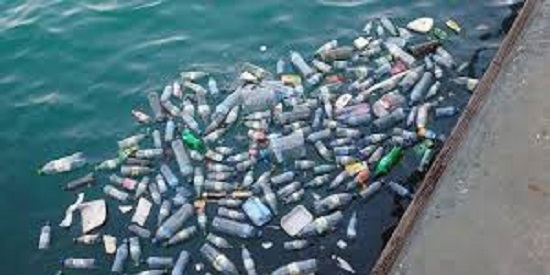Microplastics harming our drinking water: Deakin research
Media release
Plastic in our waste streams is breaking down into tiny particles and causing potentially catastrophic consequences for our aquatic systems and human health, new research from Deakin has found.
Co-Led by Dr Ludovic Dumée and a team at Deakin's Institute for Frontier Materials (IFM) in conjunction with Surrey University in the UK, the project investigated nano and microplastics in water and wastewater treatment processes.
The team found that tiny pieces of plastic break down further during treatment processes, reducing the performance of treatment plants and impacting water quality.
Dr Dumée said there had been a substantial amount of work on nano and microplastics pollution but how they interact with water and wastewater treatment processes had not been fully understood.
"Our results show that water and wastewater treatment processes break microplastics down into nanoplastics and this poses an emerging threat to aquatic ecosystems and human health," Dr Dumée said.
"Our analysis suggests new strategies are needed to limit the number of nano and microplastics in water and wastewater to keep water quality at the required standards and reduce threats on our ecosystems."
Dr Dumée said that the presence of nano and microplastics in water had become a major environmental challenge.
"Around 300 million tons of plastic are produced globally each year and up to 13 million tons of that is released into rivers and oceans, contributing to a predicted cumulative amount of 250 million tons of plastic by 2025," Dr Dumée said.
"Since plastic materials are hardly degradable through weathering and ageing, they accumulate in the aquatic environment for years to decades, and constitute a major concern regarding plastic pollution.
"The small size and high specific surface area of nano and microplastics makes them easy to ingest by living organisms where they can reach toxic levels. Their small size also makes it easy for them to travel along water and wastewater treatment processes.
"At decent concentrations they impact the performance for water treatment processes by clogging up filtration units and increasing wear and tear of materials used in the design of water treatment units."
Dr Dumée said relatively inadequate analytical techniques made it difficult to detect their presence in treatment systems and advanced characterization systems are currently trialled at Deakin. The team is also evaluating the impact of nano and micro plastics on the performance of commercial membranes to specifically design materials relevant for fine matter removal.
"We can develop new techniques to lessen the impact of nano and microplastics across water and wastewater treatment systems but a key challenge is detecting their presence in the first place."
The research by Dr Dumée, PhD candidate Marie Enfrin and Dr Judy Lee from Surrey University's Department of Chemical and Process Engineering was published as 'Nano and microplastics in water and wastewater treatment processes – Origin, impact and potential solutions' in Water Research and can be found here.

